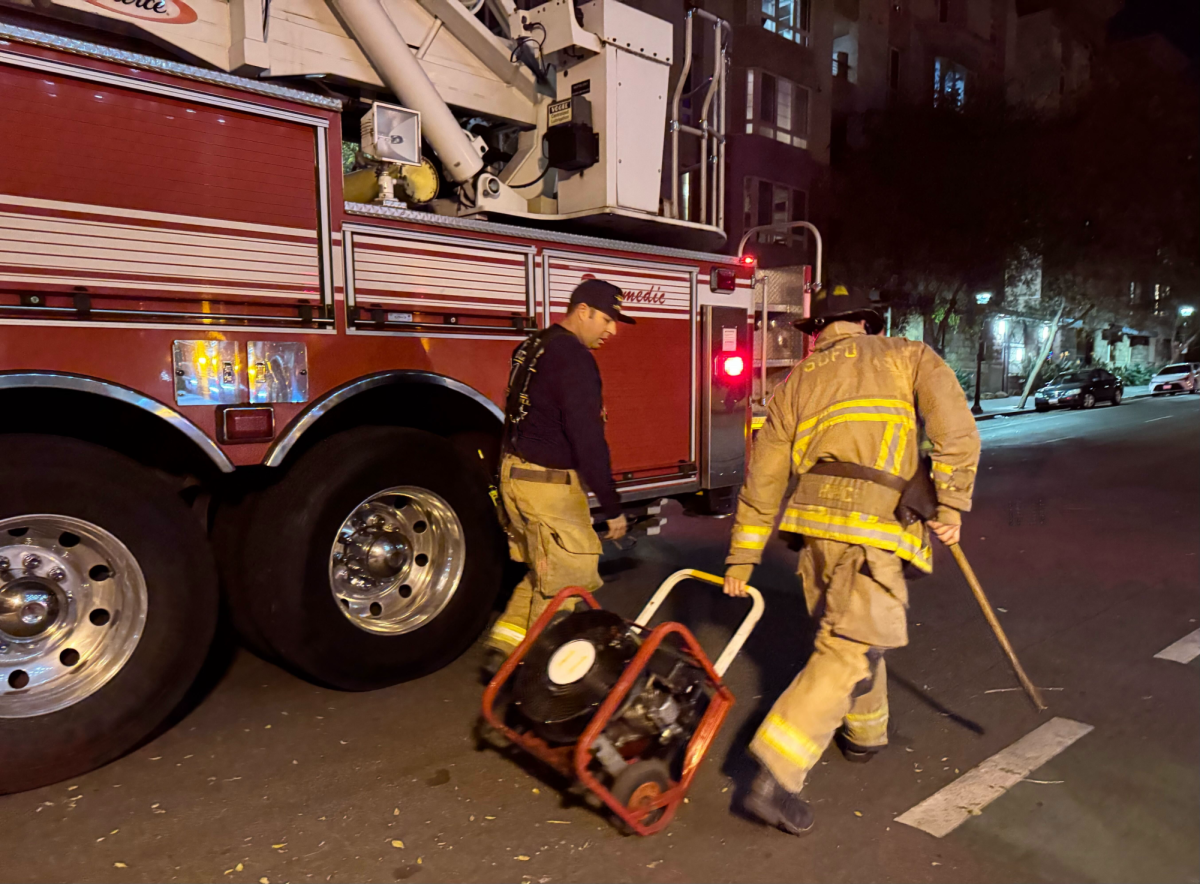Those of you that find yourself frustrated every payday after taxes are withheld from your paycheck, consider where those taxes are going and the lives you might be changing.
This summer, San Diego City College was the only community college selected to receive $851,216 from the American Recovery Reinvestment Act Training Grant.
President Barack Obama implemented the Workforce Investment Act in an effort to create more jobs. California was one of 12 states to receive this grant. Gov. Arnold Schwarzenegger was directed by the Labor and Workforce Development Agency to approve funding for the grants under the administrative authority of the California Employment Development Department.
The one-year grant focuses on low-income earners, the working poor, unemployed, dislocated workers and the under-skilled adults unable to qualify for jobs in the workforce. Recruiting 75 participants who exemplify specific qualifications was only the beginning for Professor Leroy Brady and Associate Professor Rose LaMuraglia, who are tasked with implementing the grant’s directive.
Brady and LaMuraglia put their own lives on hold to produce the curriculum individuals need to excel in Computer and/or Network Support and Administration positions. Through her past experiences, LaMuraglia noticed that students focusing their studies in technology often lacked proficient communication skills. The American Recovery and Reinvestment Act comprise aspects of business and communication classes.
“I’m not trying to sell hope,” LaMuraglia explained, after receiving the grant June 18. “I want my students to prove themselves deserving and we will give them the ride of a lifetime.”
The application process was a task in its own, including various informational orientations and a series of tests.
Brady and LaMuraglia implemented an interviewing process to better analyze each applicant’s qualifications. This was to test their, “commitment to the program,” as LaMuraglia explained, by following through with simple tasks.
Creating a new e-mail account initiated the beginning of a new life as the first step in the right direction. Requirements included applying for the Board of Governors Grant and financial aid, completing City College’s assessment tests and registering as a student.
Participants’ ages averaged mid 30s to late 60s with a few exceptions, Brady explained. An income as low as $20,000 for instance was too high for admittance. Qualified students struggled with extreme levels of poverty, or in Brady’s words, “life had just happened to them and life can happen to anyone.”
“These people experience another level of survival or existence,” Brady continued. “The number of people that are homeless and hungry is astounding and the world would never even know.”
Brady and LaMuraglia decided that in order for the students to break their cycle of poverty and complete the program efficiently, they needed to have double the assignments of a regular student.
“They have something special because never in my life have I had a student receive this much work and not once complain, but actually read and finish assignments ahead of time,” LaMuraglia said.
Brady elaborated by describing the drive and motivation the students have because they want to prove it to themselves and their families that a change can be made. The program focuses on positive reinforcement individually and as a group. Students receive tutoring, counseling and other basic necessities to succeed academically.
“For the first time, I feel as though my professors actually care about me and my success,” said Jason Kramer, a former college student who has never completed his education.
The structure of ARRA is creating a learning environment that enables the students to learn together like “family,” students repeatedly said.
Classes are preparing participants with experiences they will encounter in an everyday career. The professors said they are molding students into the kind employee they would want to hire themselves.
“I graduated from high school and didn’t have the confidence to go to college, so I never took that path,” Lemmie Donaldson, an ARRA participant, said. From his perspective, high school doesn’t always prepare students for future life decisions.
“Dr. Brady’s course enables us to create relationships that lead to job security,” said Jason Huel, a computer engineering major and athlete from Riverside City College. “It’s changing my life and family. I can be a role model for my children by completing my homework as they do their own.”
Jonathan Britschgi has a degree in satellite communications and served in the Army for six years. A satellite communications degree was useful in Iraq, but after his first child was born in January, getting a job here became his priority. An opportunity never came up until ARRA, he said.
“The teachers back us up 100 percent,” Britischgi said.
All 75 participants are guaranteed the resources necessary to apply for a job after completion of ARRA. Brady and LaMuraglia expressed their dedication to visiting companies to make sure they are serious and allow students to succeed beyond the classroom.
“We are visiting companies and securing job availability for our students. At the same time molding them from the very beginning and making sure they accomplish their goals,” Brady said.
By next February, the students will have one of 240 degrees and certificates offered by City College, ranging from computer business technology and computer information systems to electronics and business studies.







